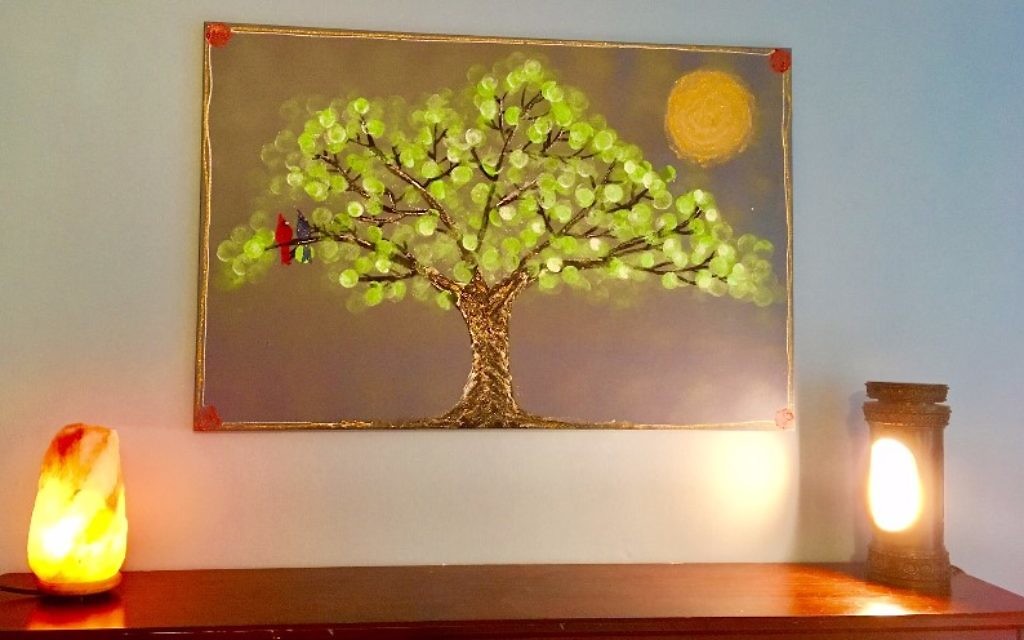Feeling Good Again
Painting reflects deeper connection to spiritual growth.

I smile each time I see the painting now mounted on the wall above my bed — its circular green leaves, shimmering trunk and glittery sun seeming to glow against its deep-blue background.
But it didn’t always look that way. Last year, when I originally painted it, the black trunk and bare branches sat sadly beneath a hazy moon. The lonely cardinal sitting on a branch has been joined by a blue jay, along with the new brightness and life that surround them.

My husband commented that it’s amazing how a painting can match someone’s mood and that I must be in a good place now. It’s true: I am feeling good emotionally and physically. But I wouldn’t appreciate this as much if I didn’t know what it felt like to not feel good — to be 35 pounds overweight and disconnected from myself and G-d.
Get The AJT Newsletter by email and never miss our top stories Free Sign Up
I like to say that my relationship with Hashem waxes and wanes, a nearly constant struggle. According to Rabbi Zelig Pliskin, who has written numerous Torah books, this is totally normal.
In this week’s parshah, Re’eh, which means “to see,” the Torah tells us that no matter how far away you are from G-d, from love and joy, you can always come close when you make an effort.
When a person feels discouraged, his belief that he can no longer improve becomes a self-fulfilling prophecy. But as soon as you believe you can improve in an area, you will immediately find the strength to make those improvements.
Find people to consult with if you need direction. Never despair, Rabbi Pliskin says, and keep your focus on what you can do in the present to reconnect.
When I start to envy those who seem to have it easy, who never struggle with ups and downs, who seem to have complete faith and motivation at all times, I try to remind myself of the saying “Don’t judge your insides by someone else’s outsides.”
We never truly know what is going on with someone, where they came from or where they are ultimately headed. And sometimes it seems the further away we may go from joy and connectedness, the more momentum and potential we have to come back in full swing with even greater strength and faith.
Rabbi Levi Yitzchak of Berditchev once approached a wicked person who did much wrong in his life and said: “I am envious of you. If you will repent and return to the Almighty with love and sincerity, all of your blemishes will be transformed into a great, shining light. I envy the brilliance of that light.”
That is in part what I hope to represent in my altered painting: No matter how dark or discouraging life may become, there is the potential at any moment to let the light in — or maybe even to help others see a spark of their own light, just waiting to be revealed.
How to Improve Mood and Connectedness
- Do something kind for someone else. Call a parent or friend just to check on that person, for example.
- Make a list of things you’re grateful for, even if they seem obvious. I’m grateful my contact lenses help me see, that I found time to paint, that my children are getting along well at this moment.
- Pray, meditate, breathe. Find a quiet space and try to calm your mind. Saying Modeh Ani and Shema are great ways to connect.
- Each day, try to do something healthy that you enjoy, whether it’s doing yoga, going for a walk or visiting someone who is a positive influence in your life.




comments